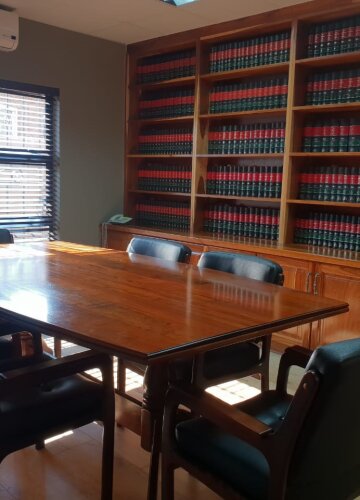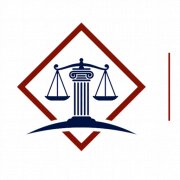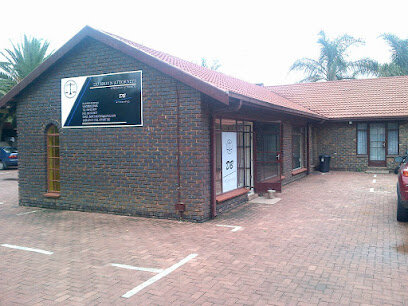Best Collaborative Law Lawyers in Vanderbijlpark
Share your needs with us, get contacted by law firms.
Free. Takes 2 min.
Free Guide to Hiring a Family Lawyer
List of the best lawyers in Vanderbijlpark, South Africa
About Collaborative Law in Vanderbijlpark, South Africa
Collaborative Law is an alternative dispute resolution process designed to help parties resolve legal disputes outside of the court system, focusing on cooperation and mutually beneficial outcomes. In Vanderbijlpark, South Africa, collaborative law is most commonly used in family law cases such as divorce, child custody, maintenance, and property settlements, but it can also be applied to commercial disputes, labor issues, and more. Instead of contesting matters in adversarial court proceedings, parties agree to work together, along with their respective lawyers, to reach a fair and transparent agreement.
Why You May Need a Lawyer
A lawyer trained in collaborative law can provide invaluable legal guidance and support if you are facing one of the following situations:
- Divorce or separation where you want to minimize conflict and reach an amicable settlement
- Child custody or visitation disputes where the best interests of the child are a priority for both parents
- Disagreements regarding spousal or child maintenance obligations
- Division of property or complex financial settlements
- Business or partnership disputes where ongoing relationships matter
- Labor or employment disagreements that require sensitive negotiation
- Any situation where privacy, reduced emotional stress, and the preservation of relationships are desirable outcomes
A collaborative lawyer will advocate for you while prioritizing resolution through negotiation, transparency, and respect, rather than litigation and confrontation.
Local Laws Overview
South African law recognizes the value of alternative dispute resolution, and the collaborative approach aligns with principles outlined in the Constitution and various statutes, notably in the realm of family law. The Children’s Act, Maintenance Act, and the Divorce Act all encourage parties to resolve disputes outside of court wherever possible. Collaborative law is not explicitly regulated by statute in South Africa, but practitioners adhere to professional guidelines and ethical standards set out by the Legal Practice Council and regional legal associations.
In Vanderbijlpark, collaborative lawyers typically work in multidisciplinary teams, which may include financial advisors, mental health professionals, or family mediators, depending on the complexity of the case. Participation in the collaborative process is voluntary for all parties, and everyone signs a participation agreement outlining a commitment to openness, confidentiality, and the shared goal of resolution without litigation.
Frequently Asked Questions
What is the main difference between collaborative law and mediation?
Collaborative law involves each party having their own specially trained lawyer throughout the process, while mediation generally features a neutral third-party mediator who assists communication but does not provide legal advice to either side.
Can collaborative law be used for matters other than divorce?
Yes. While it is most well-known in the context of divorce and family law, collaborative law can be used for a variety of civil legal disputes, including business, labor, and property matters.
Are agreements reached through collaborative law legally binding?
Yes. Once both parties reach agreement, a contract or settlement is drafted and, where necessary, made an order of court to ensure it is legally enforceable.
How does confidentiality work in collaborative law?
All discussions, documents, and information exchanged during the collaborative process are confidential and cannot be used in court if the process fails and litigation ensues.
What happens if we cannot reach an agreement through collaborative law?
If the process fails, both parties will need to hire new lawyers to represent them in court, as collaborative lawyers are not allowed to participate in further contested proceedings regarding the matter.
How long does the collaborative law process take?
The duration depends on the complexity of the issues, willingness of the parties to cooperate, and scheduling. In general, it is significantly faster than court litigation.
Is collaborative law less expensive than going to court?
In most cases, collaborative law is less costly than traditional litigation, as it avoids lengthy court processes and encourages efficient settlement.
Do both parties need to agree to use collaborative law?
Yes. Collaborative law is a voluntary process and cannot proceed unless both parties consent and commit to the process.
Can we include experts in the collaborative process?
Absolutely. Financial specialists, mental health experts, or child specialists can be included to provide impartial guidance and help reach fair agreements on complex matters.
Where can I find a collaborative lawyer in Vanderbijlpark?
You can find collaborative lawyers through local law societies, the Legal Practice Council, or by seeking referrals from trusted legal professionals in the Vanderbijlpark area.
Additional Resources
For further support and guidance regarding collaborative law in Vanderbijlpark, consider the following resources:
- Legal Practice Council - Gauteng
- South African Association of Collaborative Professionals (SAACP)
- Family Life Centre Johannesburg (Counselling and mediation services often used by collaborative law practitioners)
- Department of Justice and Constitutional Development - Family Law Section
- Vanderbijlpark Magistrate’s Court (for information on making agreements an order of court)
- Local law firms specializing in family and collaborative law
Next Steps
If you believe collaborative law is a suitable approach for your legal matter in Vanderbijlpark, take the following steps:
- Assess whether both parties are open to resolving the dispute without court intervention
- Consult with a collaborative lawyer to discuss your options and understand the process in detail
- Ensure all parties agree to commit to the collaborative process by signing a participation agreement
- Work collaboratively with your lawyer and any other relevant experts or advisors throughout the negotiations
- Once an agreement is reached, have it documented formally by your lawyer and made an order of court if necessary, to ensure enforceability
Remember, collaborative law prioritizes dignity, respect, and sustainable outcomes. Early legal advice is essential to determining if this approach matches your needs and goals.
Lawzana helps you find the best lawyers and law firms in Vanderbijlpark through a curated and pre-screened list of qualified legal professionals. Our platform offers rankings and detailed profiles of attorneys and law firms, allowing you to compare based on practice areas, including Collaborative Law, experience, and client feedback.
Each profile includes a description of the firm's areas of practice, client reviews, team members and partners, year of establishment, spoken languages, office locations, contact information, social media presence, and any published articles or resources. Most firms on our platform speak English and are experienced in both local and international legal matters.
Get a quote from top-rated law firms in Vanderbijlpark, South Africa — quickly, securely, and without unnecessary hassle.
Disclaimer:
The information provided on this page is for general informational purposes only and does not constitute legal advice. While we strive to ensure the accuracy and relevance of the content, legal information may change over time, and interpretations of the law can vary. You should always consult with a qualified legal professional for advice specific to your situation.
We disclaim all liability for actions taken or not taken based on the content of this page. If you believe any information is incorrect or outdated, please contact us, and we will review and update it where appropriate.










